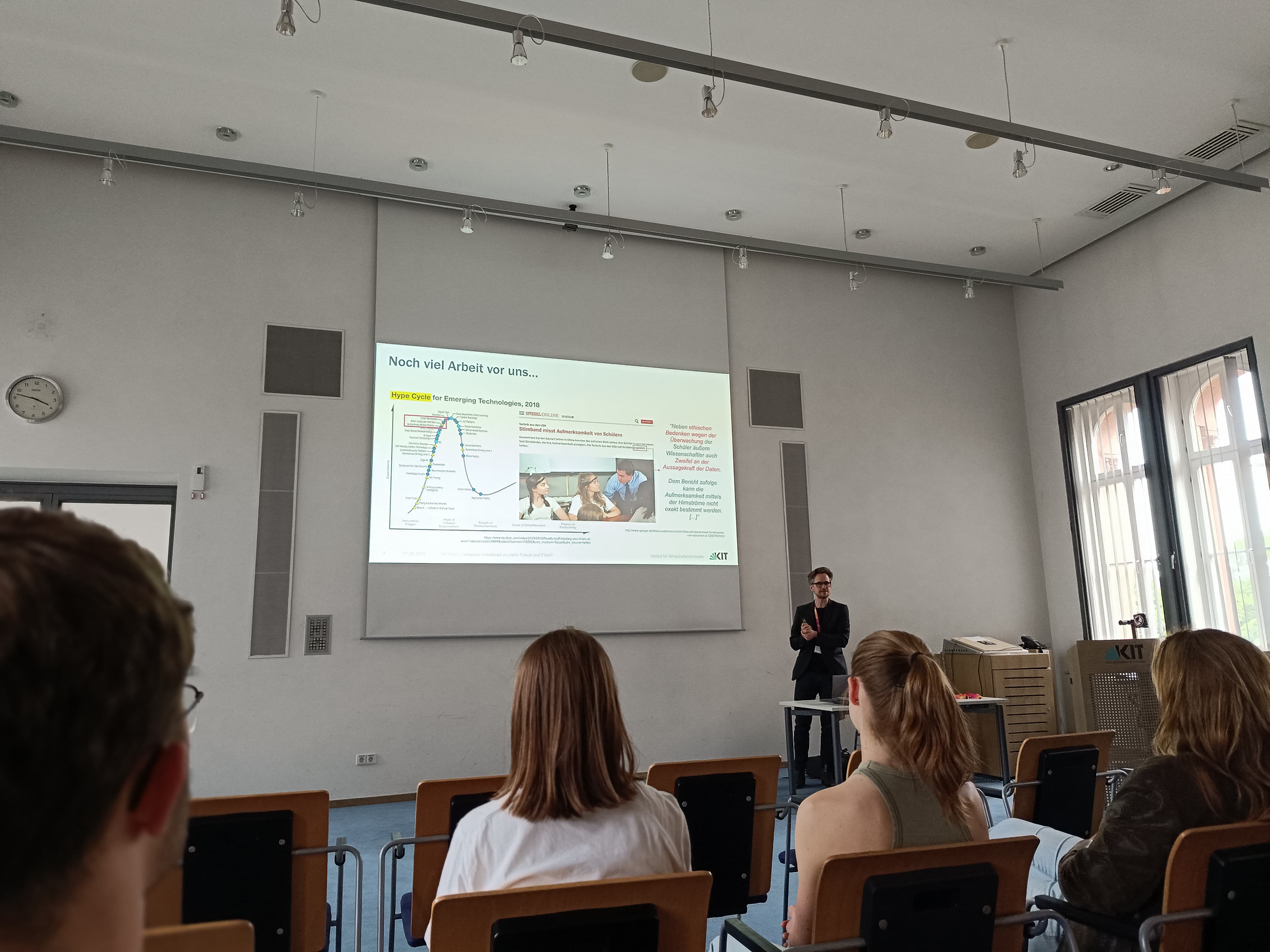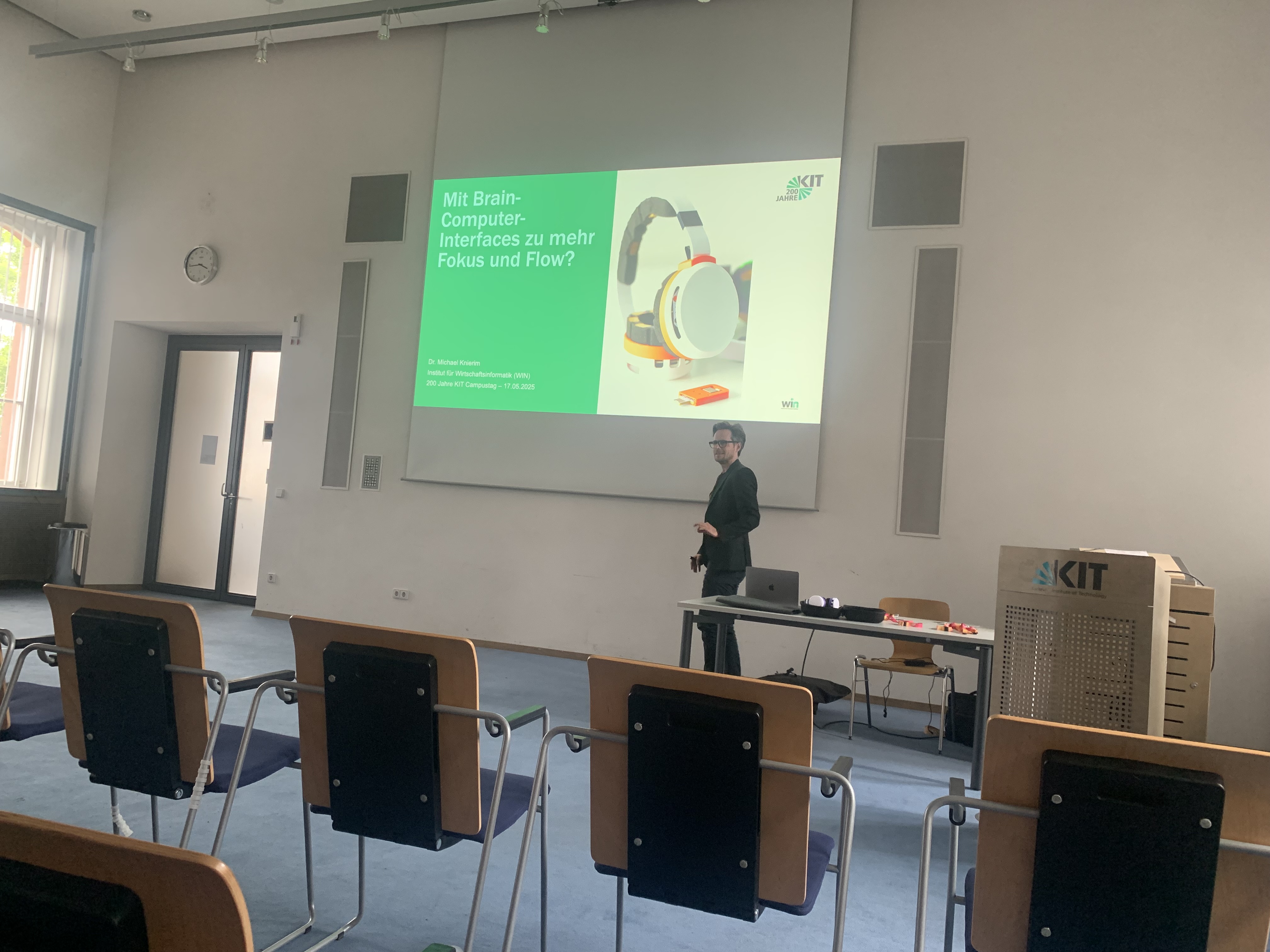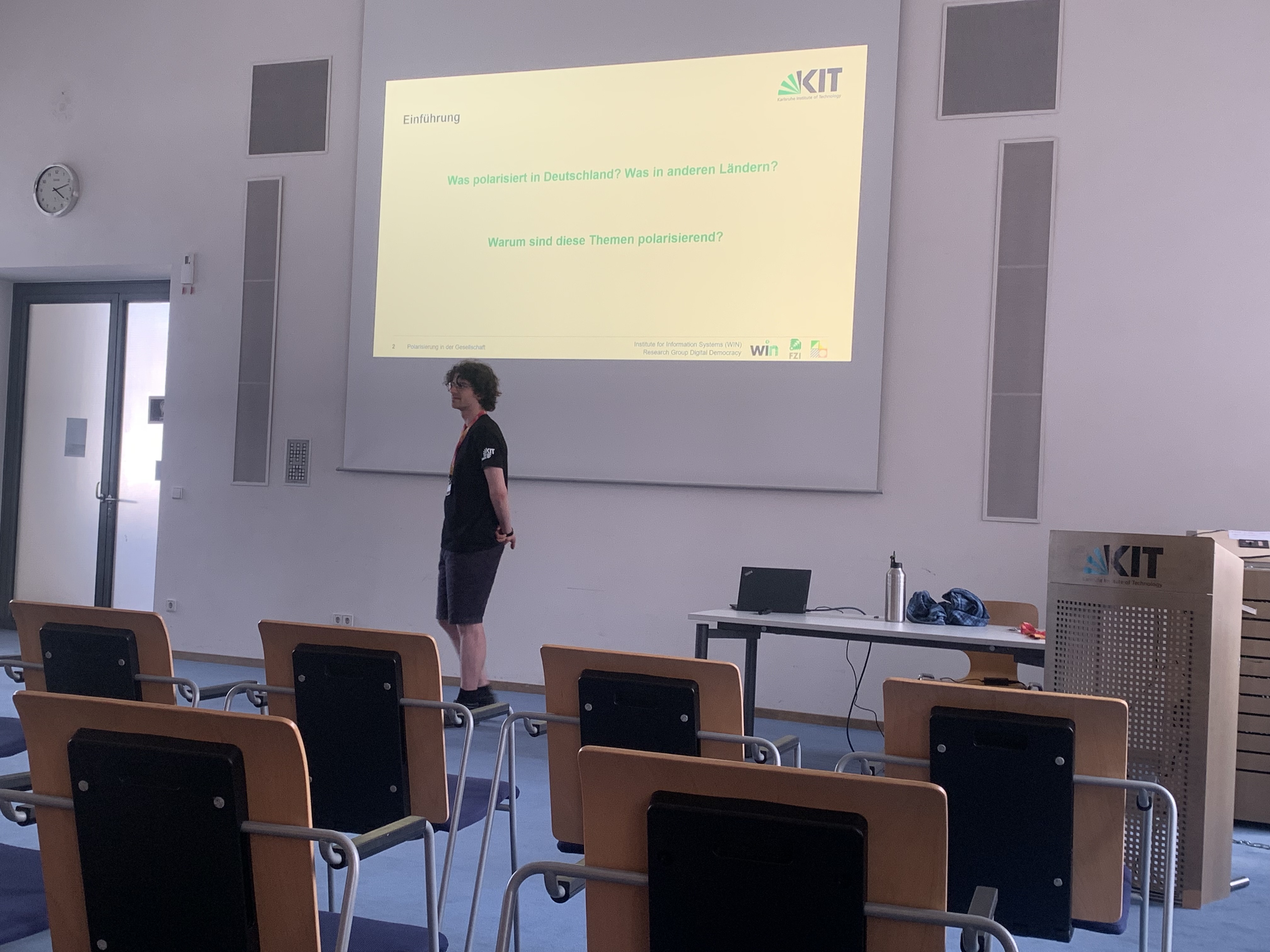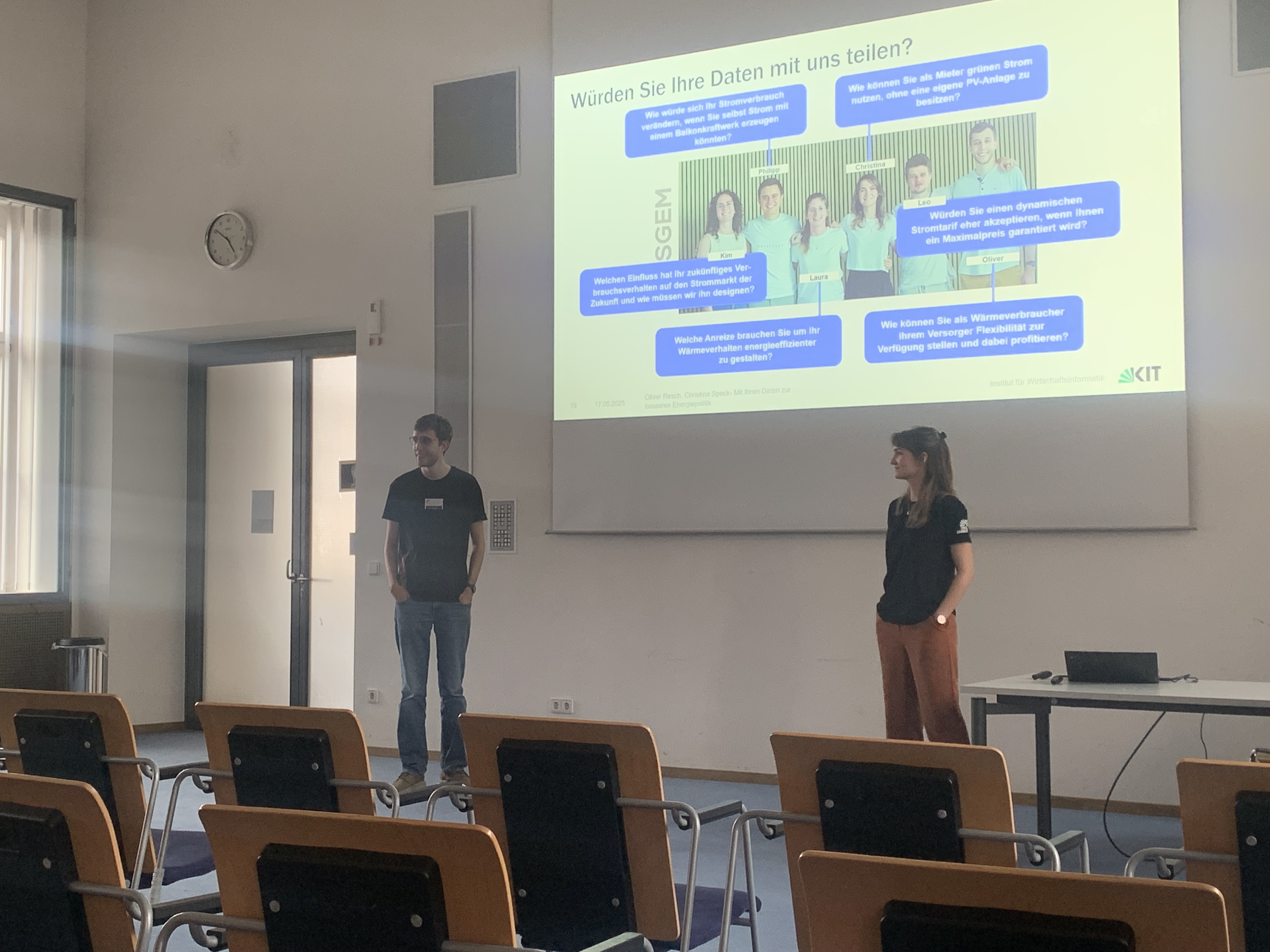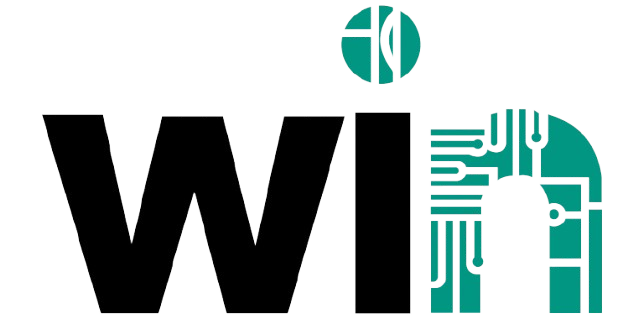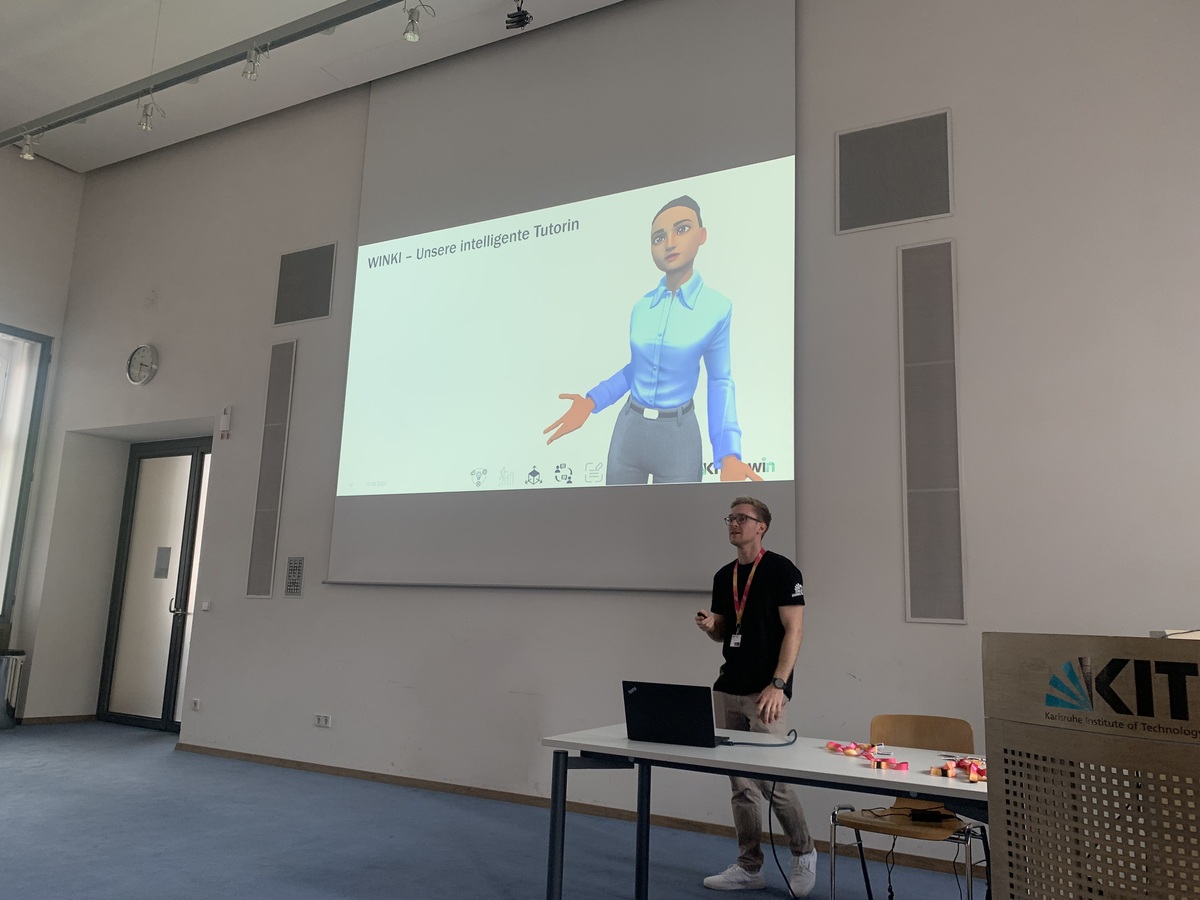
WIN presentations at KIT 200-year jubilee
- Date: 17.05.2025
-
This year, the Karlsruhe Institute of Technology (KIT) celebrates its bicentennial anniversary. As part of the festivities, KIT welcomed the public on May 17 during its annual "Tag der offenen Tür" (Open House Day). Some of our young researchers had the chance to present their latest research:
Kicking off the afternoon, Anuja Hariharan introduced the concept of digital twins in online meetings. As AI technologies evolve, representing oneself through a digital avatar is becoming increasingly feasible. The talk explored what such a virtual representative might look like, how it should behave, and what it means for our identity and autonomy in digital spaces. Using a prototype of a customizable video meeting bot, she presented initial findings on how users prefer to configure their digital selves – a demonstrator on site allowed visitors to test their digital meeting twins first-hand.
Next, Thimo Schulz demonstrated how advances in Extended Reality (XR) and generative AI are enabling new ways of learning. Through the example of an intelligent virtual tutor, he showed how lecture content can be delivered in an immersive, interactive, and personalized setting. Open day visitors were able to meet their virtual tutor and learn in an innovative way. This approach offers exciting potential for making complex topics like Artificial Intelligence more accessible and engaging to learners of all backgrounds.
Michael Knierim then took the audience deeper -literally- into the mind, with a presentation on wearable brain-computer interfaces. His team’s research shows how lightweight EEG devices can now be used outside of lab environments to measure mental states such as workload, fatigue, and flow. Visitors had the opportunity to try on EEG headphones and observe their brain waves in real time, experiencing firsthand how neuroscience is moving into everyday life.
David Borukhson followed with a look at how interactive dashboards can help address one of the most pressing challenges of our time: social polarization. Using data from a sentiment analysis study, he explained how carefully designed data visualizations can improve understanding and foster informed dialogue between science, the public, and policymakers. His presentation underscored the growing importance of science communication and its role in shaping democratic discourse.
The final session, led by Christina Speck and Oliver Resch, focused on how personal energy data can contribute to more effective climate and energy policies. Using the example of dynamic electricity tariffs, they demonstrated what kind of data is valuable to researchers and how it informs political decision-making. They also introduced a new platform designed to make energy data more accessible, promoting greater collaboration between science, society, and government in the transition to sustainable energy.
We thank all visitors for their interest and enthusiasm - and look forward to continuing this journey of discovery in the next 200 years to come.
